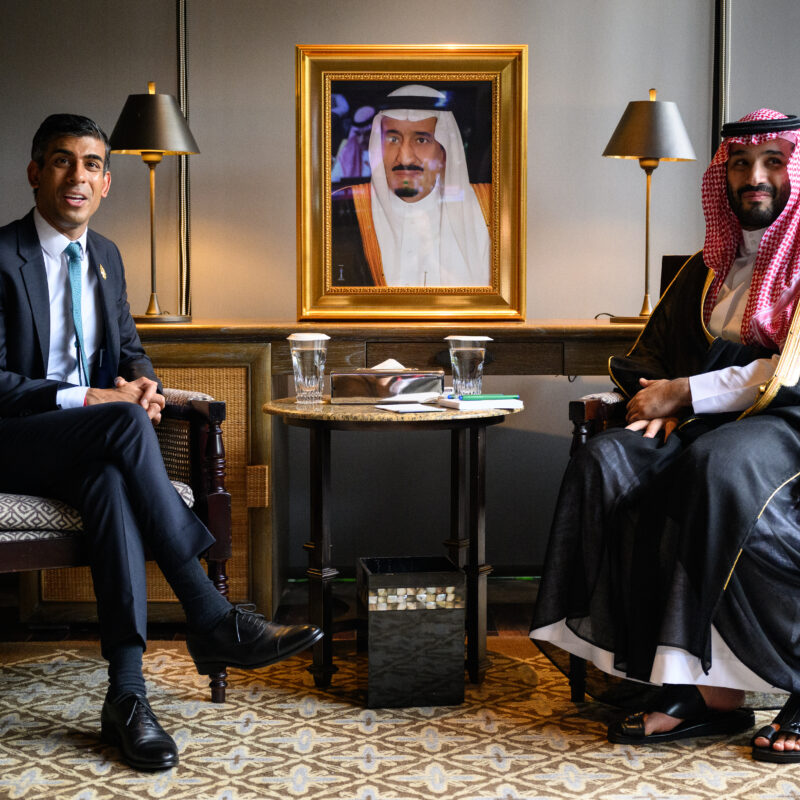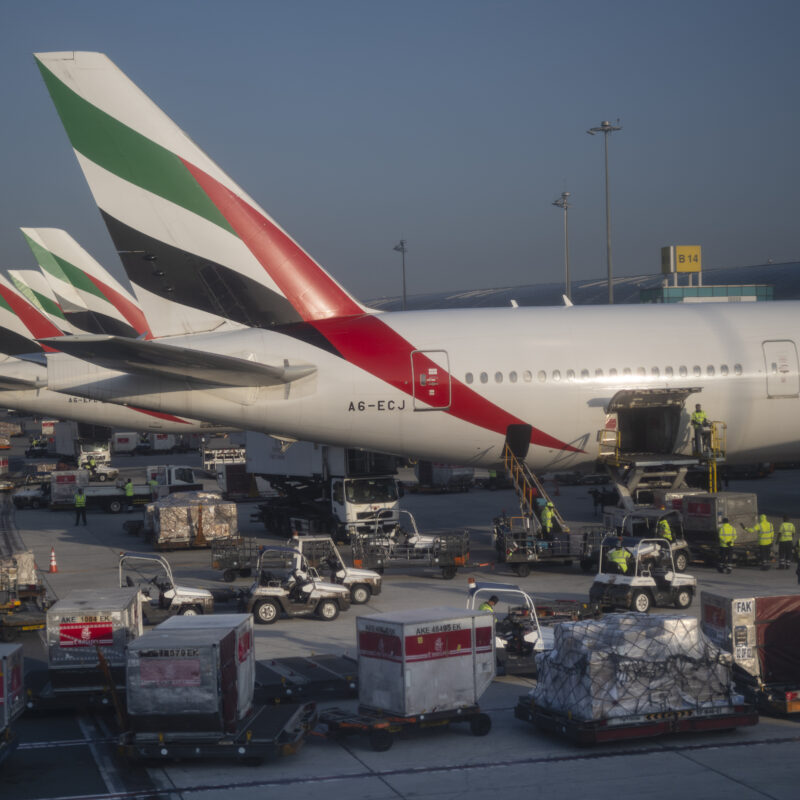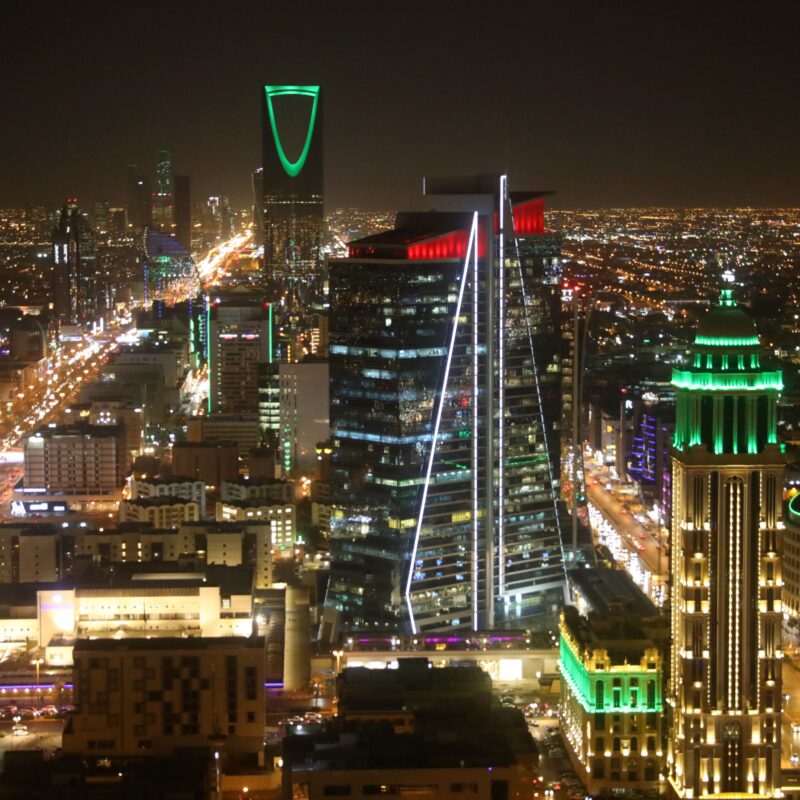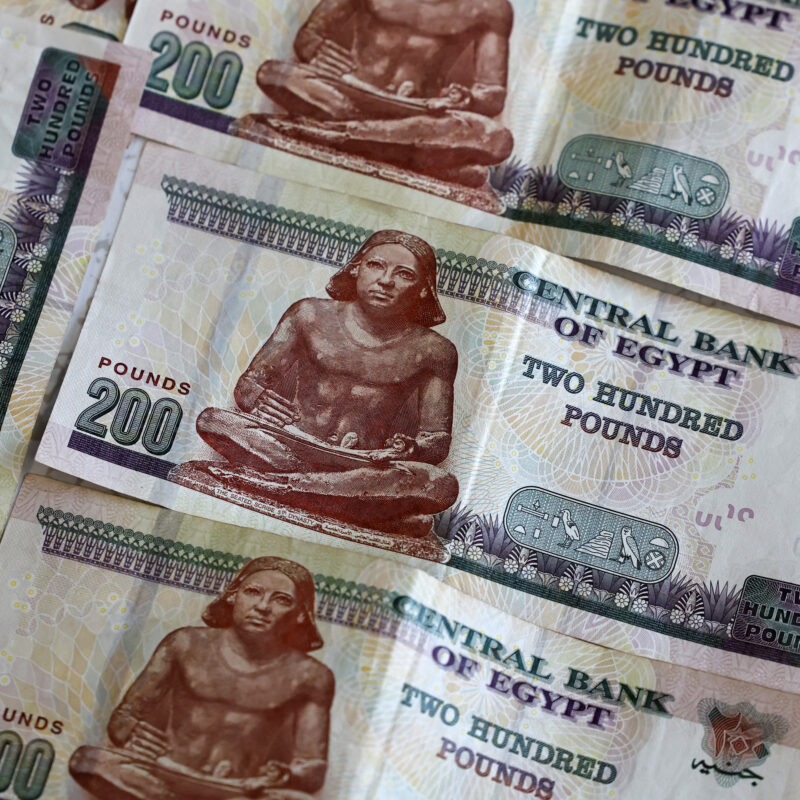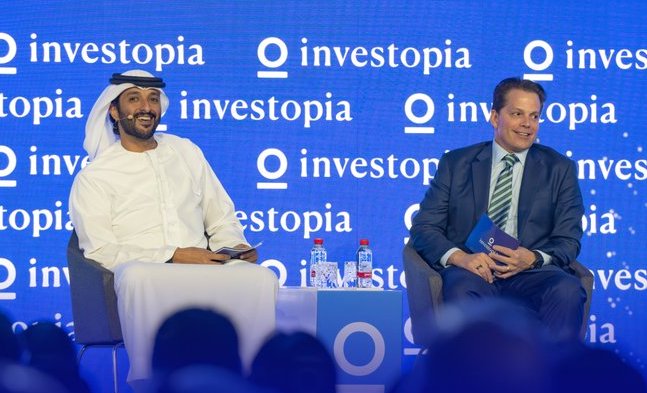The Weekly Circuit
👋 Good Monday morning in the Middle East!
Amid the global meltdown in cryptocurrencies and tech stocks, Middle East investors can still find companies that are bucking the bear market. Nearly everyone, though, will have to contend with higher borrowing costs across the region following the U.S. Federal Reserve’s June 15 decision to raise its benchmark interest rate by 0.75% in a bid to tame rampaging U.S. inflation. It was the biggest rate hike in 28 years. Members of the six-nation Gulf Cooperation Council with dollar-pegged currencies, which excludes Kuwait, raised rates in line with the Fed. The Bank of Israel makes its decision later this month.
Fueling Europe: A glimmer of light appeared on the Mediterranean last week with the European Union’s agreement to buy offshore natural gas from a joint Israel-Egypt venture, as The Circuit’s Ruth Marks Eglash reports below. While the quantities will be modest, the deal is part of an EU drive to make up for fuel supplies that its member countries previously bought from Russia. And along with efforts to punish Moscow for invading Ukraine, the U.S. Treasury’s Deputy Secretary Wally Adeyemo visits Turkey and the UAE this week to promote sanctions on Russian assets.
Digital Doom: The crypto crisis is swiftly rewriting the scripts for both private investors and institutions in the Middle East that have poured fortunes into digital currencies. From Abu Dhabi to Tel Aviv, the biggest players in the region have been cutting staff and trimming perks. At the center of last week’s carnage was the American-Israeli lender, Celsius Network, which froze all withdrawals and transfers for some 1.7 million customers as its own cryptocurrency lost 95% of its value and Bitcoin plunged below $20,000 to its lowest since December 2020.
Welcome to The Weekly Circuit, where we cover the Middle East and North Africa through a business and cultural lens. Read on for the stories, deals and players at the top of the news. Please send comments and story tips to [email protected].
Energy Challenge
Gas deal bolsters Israel-Egypt industrial ties, while help for Europe’s fuel gap is limited
The European Union’s commitment to buy Mediterranean gas through an Israeli-Egyptian partnership will be a boon to the energy industries in both countries, even if it’s only a fraction of what’s needed to reduce the continent’s dependence on Russia.
Exporting LNG: Following the agreement signed in Cairo last week, government officials hailed the benefits for Israel and Egypt in working together to export liquefied natural gas to markets outside the region. Energy analysts noted, though, that it would take years to ramp up supply through the Idku and Damietta liquefaction plants on Egypt’s northern coast, limiting the prospect of actually filling the gaps in gas flow that have hiked Europe’s energy costs since Russia invaded Ukraine in February.
Relatively Small: “On a practical level, Israel is already supplying close to maximum capacity” for its domestic gas needs and the amount sent via an undersea pipeline to Egypt, Amit Mor, chief executive of Israeli consulting firm Eco Energy, told The Circuit. While “nice and symbolic,” he said, the three-way agreement “will not have a significant effect on the gas supply to Europe because it is a relatively small amount.”
Wake-Up Call: As the gas deal has clearly been in the works for several years, said Middle East political risk consultant Ghanem Nuseibeh, “what has happened with the Ukraine crisis is a wake-up call.” The fact that the countries involved have realized that they face serious and common challenges has allowed a “shift in geopolitics,” said Nuseibeh, a founder of London-based Cornerstone Global Associates. This has forced previous regional concerns and rivalries to “become of secondary importance compared to the real challenges of energy and food security faced by all the countries,” he said.
Lebanon Conflict: The cooperative effort by Egypt and Israel to supply gas to Europe stands in contrast to the saber-rattling between Lebanon and Israel that has flared over deep-water gas fields straddling the two countries’ maritime borders. Just two days before the Cairo ceremony, U.S. Special Envoy Amos Hochstein flew to Beirut in an attempt to restore calm and find a solution to the dispute between Lebanon and Israel that has simmered for years and has threatened to escalate into a military confrontation.
Shifting gears
USAID nominee Wittes says past skepticism over Abraham Accords was ‘wrong’
Tamara Cofman Wittes, the Biden administration’s nominee to be the assistant administrator of the U.S. Agency for International Development for the Middle East, expressed support for the Abraham Accords under questioning by Republicans on the Senate Foreign Relations Committee about past comments critical of the normalization agreements, Jewish Insider’s Marc Rod reports. Wittes was testifying at a June 16 confirmation hearing alongside Michael Ratney, formerly the chargé d’affaires at the U.S. Embassy in Israel, who has been nominated to be the ambassador to Saudi Arabia.
Background: Wittes had previously expressed skepticism about the agreement’s durability and whether other countries beyond the United Arab Emirates would join them. She described the deals as having been “oversold,” a “betrayal of Palestinian interests” by Arab signatories and an overall setback for the Palestinians. Senator Todd Young, an Indiana Republican, said that Wittes had promoted on social media an article that called the deal a “triumph for authoritarianism.” Her Twitter account is now private.
Voicing Support: At the hearing, Wittes praised the Accords, which she said brought “profound transformation” and “strengthen[ed] the pro-American coalition” in the Middle East. She said she had encouraged the Biden administration to build on the agreements before she was nominated. “The Accords offer a foundation for more cooperation between Arab States and Israel… If I’m confirmed, I look forward to engaging with you on how we can build on the Abraham Accords to bolster positive engagement across the region.”
Reverse Course: Wittes acknowledged that she was initially “skeptical” that the Accords could be expanded beyond the UAE, “and I was wrong about that.” Young, who is the top Republican on the Senate panel’s Middle East subcommittee, indicated to JI after the hearing that her remarks had not mollified his concerns, saying that her early comments about the Accords should “probably” disqualify her from the position for which she was nominated. “I think it’s notable how wrong she was as a scholar of the region,” he said.
Read the full story here.
Circuit Chatter
House-Hunting: Some 4,000 wealthy Russians fleeing their homeland because of the Ukraine conflict will move to the United Arab Emirates, while about 2,500 will hunt for homes in Israel, according to UK consulting firm Henley and Partners.
World Cup Tents: Qatar plans to pitch 1,000 Bedouin-style tents in the desert to help fill the gap in hotel rooms for soccer fans coming in November for the World Cup.
Tunnel View: Saudi Arabia’s $500-billion megacity, NEOM, has awarded contracts to two joint ventures connected to China and South Korea to build two 28-kilometer (17-mile) tunnels for high-speed trains. The massive project on Saudi Arabia’s northwestern coast reportedly will also include a desalination plant powered entirely with renewable energy.
Green Machine: Israel Aerospace Industries unveiled a new rocket-detection system called the Green Lotus, which is laden with sensors that can alert military forces to artillery and mortar fire, and assess the enemy’s surveillance capabilities.
Masked Again: The UAE will require wearing masks again in malls and all other indoor public spaces following a rise in COVID-19 cases. Saudi Arabia, on the other hand, has dropped mask requirements as fewer cases have been recorded.
Grow Your Own: Egypt, the world’s biggest importer of wheat, said the nation’s farmers must double sales of the crop to the government or face prison, to make up for disruption of supplies stemming from the Ukraine conflict.
Hong Kong Crypto: Israel’s central bank and its Hong Kong counterpart will test the feasibility of a government-issued digital currency that has bolstered protection against cyber risks.
Closing Circuit
Chips Ahoy: U.S. semiconductor maker Qualcomm said it will acquire Israeli startup Cellwize, which accelerates the deployment of 5G networks, for $350 million.
IPO Fever: Oman is mulling an initial public offering for two units of state oil company OQ, following similar shares sales in Saudi Arabia and the UAE.
Sportsbot: Pixellot, an Israeli startup that automates the broadcast of sporting events using artificial intelligence, raised $161 million in a funding round led by PSG Equity.
Waste Not: Right Farm, a Dubai startup that helps food retailers and restaurants reduce waste of fruits and vegetables, raised $2.8 million from investors, including ADQ and Enhance Ventures.
SPAC Travel: Holisto, an Israeli online travel booker, will merge with a SPAC (special purpose acquisition company) and sell shares on Nasdaq at a value of $405 million.
Better Image: Aidoc, an Israeli developer of radiology software, raised $110 million in a funding round co-led by TCV and Alpha Intelligence Capital.
Career Starter: Canditech, an Israeli company that develops software to evaluate job candidates, raised $9 million in a seed funding round co-led by Insight Partners and StageOne Ventures.
Hit the Accelerator: AnD, a Tel Aviv venture capital platform, and New York-based 25madison are joining forces to help accelerate the ability of Israeli startups to operate in the U.S. market.
On the Circuit
Salim Al-Aufi: Oman appointed Al-Aufi as energy minister, replacing Mohammed Al-Rumhi, who held the office for 24 years.
Fahad bin Abdullah Al-Dosari: Saudi Arabia’s General Authority for Statistics appointed Al-Dosari as president, succeeding Konrad Pesendorfer. Al-Dosari was previously deputy governor of the Saudi Central Bank.
Doron Almog: The Jewish Agency appointed Almog, a retired general, to direct the quasi-governmental institution that promotes immigration to Israel.
Ahead on the Circuit
June 20-22, Doha, Qatar: Qatar Economic Forum. The conference, sponsored by Bloomberg, focuses on new Middle East frontiers for technology. Ritz-Carlton, Doha.
June 21, Dubai: Energy & Sustainability Summit. The international conference examines the MENA region’s energy transition, focusing on how the construction industry is putting sustainability into practice. St. Regis Hotel, Dubai.
June 21-22, Jerusalem: Eli Hurvitz Conference on Economy and Society. Israel’s top political, business leaders gather for annual conference to ponder future economic and social directions. Orient Hotel.
June 27-30, Tel Aviv: Cyber Week. International conference brings companies from 80 countries. Speakers include Israeli Prime Minister Naftali Bennett, White House cyber adviser Anne Neuberger. Tel Aviv University.
Circuit Culture
Turning the Page: Dubai’s new Mohammed bin Rashid Library, the biggest in the Gulf, cost 1 billion dirhams ($272 million) to build, and resembles a huge open volume sitting on a bookstand. As visitors poured into the gleaming stone-and-glass structure at its opening last week, they were greeted by robot librarians boasting about the collection of more than 1.1 million printed and digital books. The library houses a broad selection of rare books, atlases and manuscripts, some dating back to the 13th century. It also has a collection of unique versions of the Quran, Latin translations of Islamic scholarly works and a first edition of Napoleon’s Description de l’Égypte, an 18th-century encyclopedic register of Egyptian history and archaeology.
Buzz Cut: Disney’s “Lightyear” has been banned in the UAE over content in the cartoon film that includes a same-sex kiss. Some 14 other countries across the Middle East and Asia, including Lebanon, Egypt, Kuwait and Malaysia have also forbidden showing the film, produced by Disney and Pixar, that expands on the tale of “Toy Story” spaceman Buzz Lightyear. Muslim countries that have protested Western films for portraying homosexual behavior on screen say they’re not alone, pointing to polls in the U.S. that show such content offends many in American audiences as well. Variety reported that the studios cut the kissing scene between two female characters in “Lightyear” at one point but restored it after a group of LGBTQ+ employees and their allies released a statement accusing them of censoring same-sex affection.

